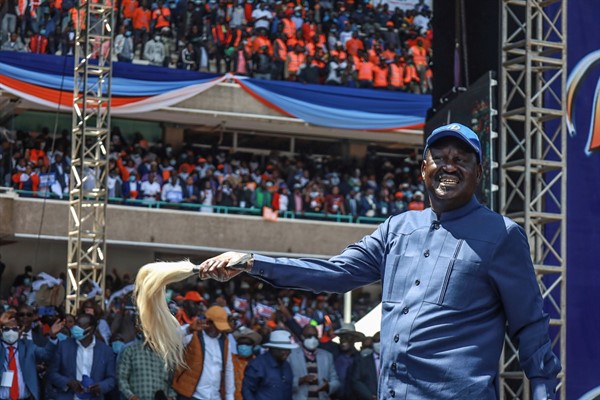Over the course of the next two and a half years, voters in several of Africa’s largest and most populous countries will be going to the polls, with a lot riding on the outcomes. This year, Kenya and Angola will both elect a president and national legislature to five-year terms. In 2023, Nigeria and the Democratic Republic of Congo, two of Africa’s four most-populous countries, are scheduled to hold general elections that include keenly anticipated presidential races, as are Zimbabwe and Madagascar. The following year, Egyptians, Rwandans and South Africans will cast ballots in elections that will ostensibly determine the next head of state. It goes without saying that many of these countries are also some of Africa’s largest economies, with Nigeria, South Africa, Egypt, Angola and Kenya all among Africa’s top 10 countries as ranked by gross domestic product.
Presidential contests in Algeria, Ghana and Mozambique will also be held in 2024, if outside the previously mentioned timeline. And countries like Sudan, Mali, Guinea, Chad and Burkina Faso, where military juntas that have recently toppled civilian governments remain locked in disputes with the African Union and regional organizations over a return to civilian democracy, could also end up scheduling elections sometime in the months ahead.
All of these eagerly anticipated contests, however, are shaping up against the backdrop of existing and emerging crises and conflicts across Africa, including the coronavirus pandemic and its multilayered effects, contracting economies, democratic erosion, violent conflicts and looming environmental crises. The impact of these developments on living conditions across the continent is already being felt and will only grow worse if governments don’t take more proactive steps to reverse the trends that contribute to them.

